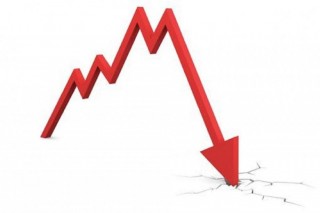Loading
Search
▼ Fall In Business Activity In Japan
- Category:Other
Japan’s business activity was hit in October following the sales tax increase which took effect during the month leading the Japanese economy to be at risk of contracting.
However, the extent to which the tax change has effected economic activity has been difficult to assess because of accompanying typhoon-related disruptions, particularly in the service sector.
In addition to, the latest survey showed that new business volumes failed to grow for the first time in three years in October. Unsurprisingly, price pressures intensified with output charges increasing at the fastest pace since the government last raised the consumption tax in 2014. The first output decline in three years.
The flash PMI compiled by HIS Markit fell to 49.8 in October from 51.5 in September, covering both the manufacturing and service sectors. This indicates the first contraction in Japanese private sector output for just over three years.
At this level, the PMI indicates that the pace of annual GDP growth is flat at the start of the fourth quarter. The impact of the sales tax increase was evident in October and most notably in the service sector.
Service business activity barely increased, with survey data indicating the second-smallest rise for the past three years. Despite further new business growth, the level of unfinished work fell for the first time in seven months. Job creation was the lowest for nearly two years.
Service fees meanwhile surged, rising at the fastest rate since the last sales tax hike five and a half years ago. However, some caution is warranted, as the extent of the tax impact on growth has been complicated by typhoon-related disruptions in October.
Furthermore, significant damages caused by the recent Typhoon will also lead to higher government spending on rehabilitation works, which, in turn, could boost services activity.
In a sign of increasing business gloom, manufacturers cut back further on purchasing activity and inventories. Stocks of finished products fell at a survey-record rate as production volumes declined for a tenth month running. Manufacturing downturn intensifies The factory decline assembled momentum at the start of the fourth quarter.
Operating conditions in the sector worsened at the fastest pace for well over three years, led by the sharpest decline in new order inflows since the end of 2012.
Inflationary pressures in the manufacturing sector were also muted. Output charges fell for a fifth month in a row, in contrast to the service sector. Factory input prices rose at the frailest pace for nearly three years as lower commodity prices and the appreciation in the yen helped bring down imported inflation. Policy guidance from future PMI signals the ongoing manufacturing downturn will meanwhile weigh on business-related services.
That said, with services having been a critical support for growth amid manufacturing weakness since the start of the year, the speed at which the service sector recovers from the impact of the sales tax hike and the super-typhoon disruption will have a notable bearing on the likelihood of a recession.
The signal from the latest flash PMI surveys adds to growing expectations of greater monetary support from the Bank of Japan at next week's policy meeting. PMI signals in the coming months will hence be under analysis to assess the health of the Japanese economy and provide guidance as to whether more policy support is needed to avert a recession.
- October 31, 2019
- Comment (0)
- Trackback(0)


